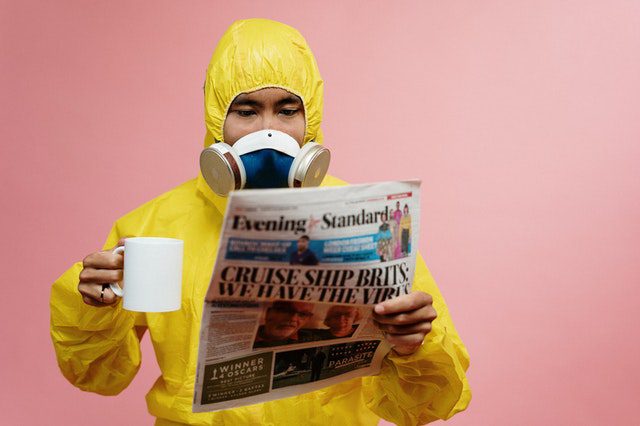So you have had a COVID-19 infection and were fortunate enough to recover. How are you spending your post-recovery time? Still donning that mask and keeping safe social distance, are you? Because if you are not, then let us warn you, cases of persons getting re-infected with COVID-19 are being reported from different parts of the world.
The layman believes that infection with subsequent recovery from coronavirus makes you immune against any further attacks because this is the basic principle of vaccination against many viral diseases. You get a shot of live or attenuated virus and your body produces antibodies against the virus, making you immune to the specific virus.
So is there anything like COVID-19 immunity? Well, the research is ongoing and as of now, there is no conclusive evidence just yet that completely rules out reinfection. So what do we know about the subject topic?
The Link Between Coronavirus And Our Immune System
Our immune system comprises of two modules:
- Intrinsic or innate immunity
- Adaptive immunity
The proposed immune status imparted by the coronavirus is an adaptive one. The adaptive immune response works via:
- The release of targeted antibodies from cells that bind with the COVID-19 virus and render it benign
- A cellular response that is mediated through T-cells that bind to the infected cells and combat infection
The more severe the infection, the higher the immune response and the stronger the memory imprinted within the immune system. The antibody response takes time to develop (about ten days) after the coronavirus’s first exposure. Of the antibody response, researchers have found that all COVID-positive patients had T-cells in their bodies. T-cells are lymphocytes – important white blood cells that play a role in adaptive immune response in the body.
The cellular response was the same for patients with mild or severe symptoms and even the asymptomatic positive cases had some T-cell immunity in their system. The research is still on regarding whether the immunity is robust enough to either protect the individual from being re-infected with COVID-19 or stop transmission altogether.
How Long Do COVID-19 Antibodies & Immunity Last?
Though the research is still ongoing, health experts are quoting a five-month duration for the post-COVID immunity. Recovered patients have an 83% lower risk of reinfection with coronavirus than those who never had the infection. But that does not mean you can ditch the preventive SOPs. You can get re-infected and can transmit the virus to others and there is no such thing as absolute post-COVID immunity.
In fact, clinical observations suggest that the re-infected people have high levels of virus in their blood, even though they had no symptoms. This indicates that disease transmission is possible through these cases.
According to the Center for Disease Control and Prevention (CDC), one needs to follow the preventive guidelines until questions regarding COVID-19 re-infection are answered.
How Can You Be Re-infected With COVID-19?
It was the South Korean scientists who reported the first suspected reinfections in April 2020. In August, official confirmation was made when a 33-year man was reinfected a second time. He was first treated for mild symptoms at a Hong Kong hospital in March and after returning from a trip from Spain in August, he tested positive again for COVID.
Since then, many other second recurrence cases have been confirmed, but that is only an underestimate of the total. The question arises, how is it possible that the coronavirus may rekindle the disease process despite the already developed antibodies and T-cell response? There are many factors at work regarding COVID-19.
Firstly, it is not easy to differentiate between reinfection and the ongoing disease process. Because the residual effects of coronavirus can linger on for some time even after the symptoms are long gone, we cannot be sure if the second attack is actually reinfection or not.
Secondly, our body’s immunity may wane with time. It may not happen with everyone, which is why the cases of reinfection are rare and sporadic. This is also shown because the repeating infectious patients presented more severe symptoms than when they experienced their first episode.
So, Is It Reinfection From COVID-19?
Coronavirus is on a mutation spree. The virus mutates every fifteen days on average. This may not change the virus’s disease-causing ability, but it helps identify the causes of reinfection clinically in a patient.
To confirm reinfection with COVID-19, a patient must have a positive polymerase chain reaction (PCR) test twice with at least one symptom-free month in between. However, there’s more to this. The second test can also be positive due to:
- Presence of residual non-replicating viral RNA from the first infection in a patient’s respiratory tract
- Concomitant presence of two viral strains at the same time in the same patient
- Because the patient never fully recovered from the first infectious episode
Taking a patient’s history and concluding via genetic sequencing is the only way to truly confirm a reinfection case. This is a cumbersome process, which requires the labs to store the patient’s samples for longer durations.
What Is The Prognosis On Being Re-infected With COVID-19?
There is a mix of skepticism and hope among researchers in regards to coronavirus reinfection. Researchers are skeptical because real-time cases of reinfection have emerged. While our immune system is programmed to fight the infection and retain the memory in B and T memory cells, which function to prevent reinfections, there is evidence of memory T-cells detection years after people recovered from the 2002-2003 SARS coronavirus. This gives the researchers hope that both B and T-cells generated from COVID-19 infections are also likely to remain in the system of post-COVID patients. Reports are coming in that second this hypothesis.
Another aspect that makes the researchers worry is not knowing how this memory B and T-cells against the COVID-19 would behave when exposed a second time to the virus. So unless more answers are available, it would be wise for everyone to follow the CDC guidelines to protect themselves and others as much as possible.
References
- https://www.gov.uk/government/news/past-covid-19-infection-provides-some-immunity-but-people-may-still-carry-and-transmit-virus
- https://www.cdc.gov/coronavirus/2019-ncov/your-health/reinfection.html
- https://immunology.sciencemag.org/content/5/53/eabe8063
- https://www.biorxiv.org/content/10.1101/2020.11.15.383323v1





